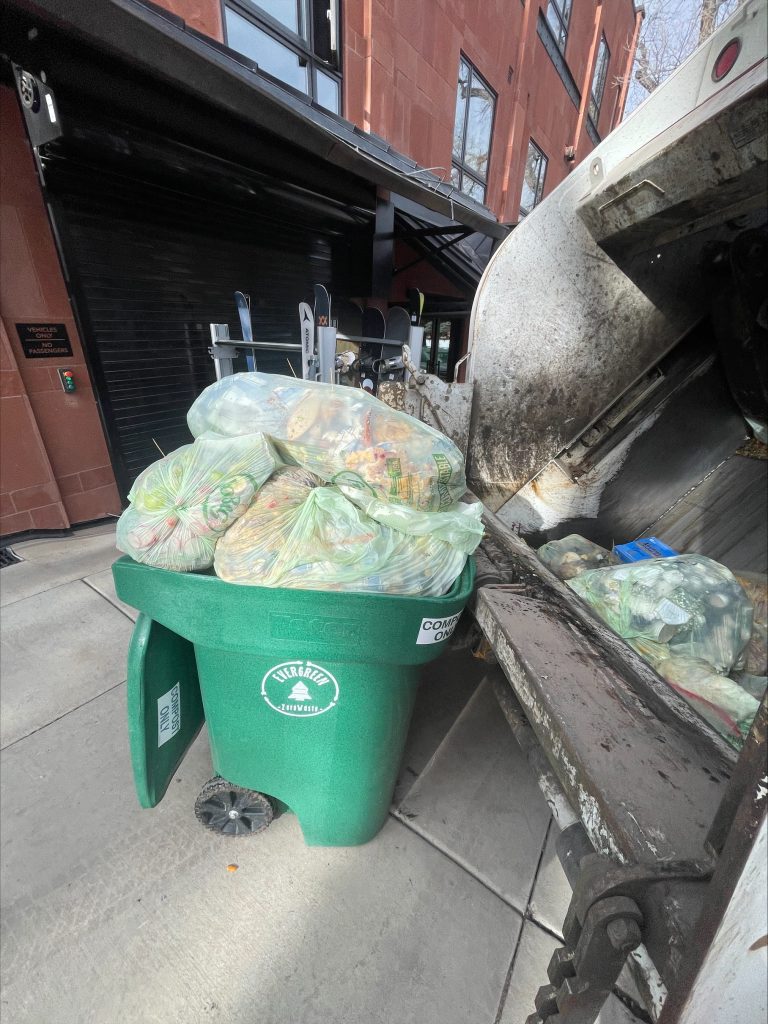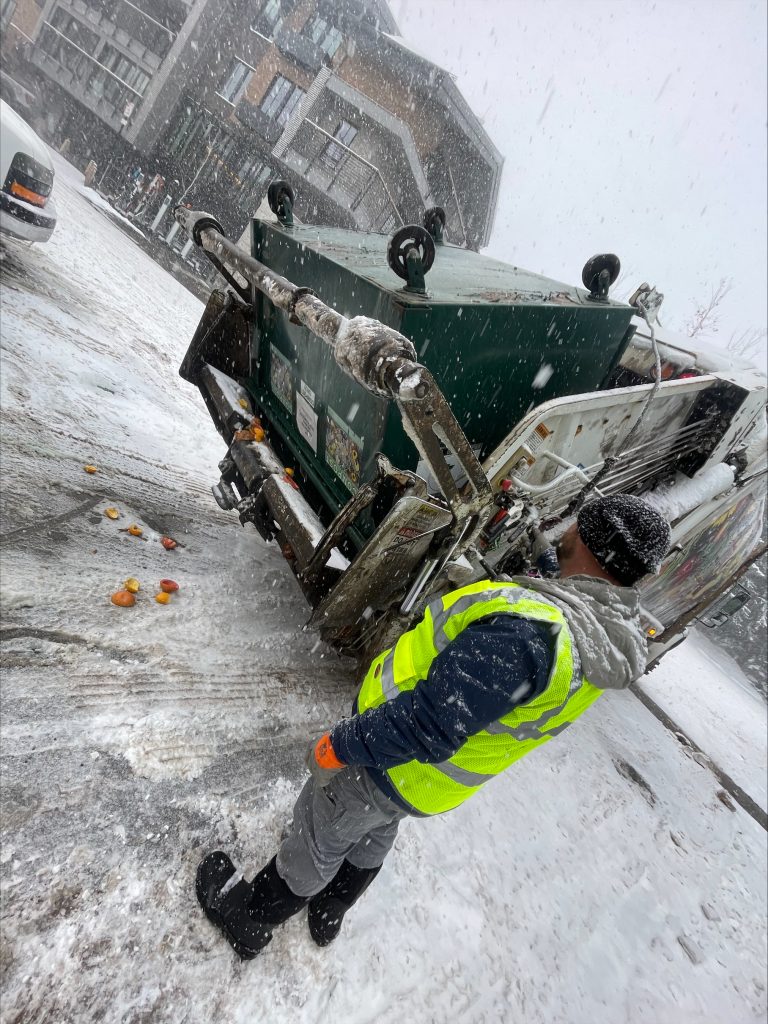Aspen sees ‘positive impact’ with Organic Waste Diversion ordinance

EverGreen ZeroWaste/Courtesy photo
Bruce Springsteen once famously said everything dies, but everything that dies someday comes back. And while the Boss might have been referring to the resurrection of Atlantic City, certainly the same sentiment could be applied to organic waste, which is the recycling of anything that was once alive into compost.
That’s why Aspen’s Environmental Health and Sustainability Department has been hard at work reducing Aspen’s greenhouse-gas emissions through the Organic Waste Diversion ordinance.
Last October, the ordinance went into effect to ensure all businesses within Aspen city limits with retail food licenses have been composting, donating, or disposing of organic waste instead of placing it within regular trash cans as had previously been accepted. And according to Waste Diversion and Recycling Administrator Ainsley Brosnan-Smith, since the program’s inception, it’s been nothing short of a complete success.

“It’s been very positive and exciting to see all the organic waste being diverted into these green bins, as opposed to them usually going in the trash,” she said. “The feedback we’ve been getting from managers is that it’s easier than recycling because if it’s food, then it goes in the green bin. I think a lot of employees feel good about it because they’re able to help make a change in their restaurants as it relates to their environmental impact. So it’s been really exciting for us to see that this ordinance is working so far.”
Over the last month, she and her team have been conducting site visits to the roughly 115 different restaurants throughout the Aspen area, which consists of checking to see if they need compostable bags, containers for the kitchens, outdoor containers, extra pickups, training, or any additional assistance. She said the plan is to continue with visits twice a year – once in the winter and once in the summer.
Just to help put in perspective the level of success the ordinance has seen thus far, she said that one of the local organic waste haulers, EverGreen ZeroWaste, reported collecting 26,000 pounds, roughly 13 tons, of organics on Christmas Day. In December of 2022, only 21 tons of organic waste was collected for the entire month, compared to over half that number being collected in one single day.
“We are having an enormous positive impact on the environment by keeping our food out of the landfill because we are reducing the amount of methane that is being produced as a result of the anaerobic decomposition that happens within a landfill,” she said.”

And she’s not alone in singing the praises of the ordinance’s success. Dave Reindel, co-founder of EverGreen ZeroWaste, said that in just a short span of three months, he’s personally seen the tremendous uptick in restaurants disposing of organic waste, to the point that it’s been a challenge to keep up with at times. He said that between October and December, they increased not only the number of days throughout Aspen, but also the length of stops to four-to five-hour shifts which yielded anywhere from 10 to 14 tons.
“I think just this hit the ground,” he said. “It really took off in a way that we were ready for but to a magnitude that we didn’t really expect. From where I’m standing, this thing is a total banger, like everybody should be patting themselves on the back about this. I think that it’s going to be a case study for other communities in Colorado and in the nation and beyond to kind of replicate and because it’s just been so successful so far. It’s been a pretty wild time.”
According to Aspen’s Environmental Health Department, the city defines organic waste as “anything that was once alive,” including food waste, compostable paper, and certified compostable products, yard waste, clean wood, and some sludges. When organic waste is buried in a landfill, it becomes starved for oxygen, which then produces a greenhouse-gas known as methane.
However, with the composting operation established in Pitkin County, organic material can be processed into nutrient-rich soil amendment that improves local soils, water retention, and carbon sequestration capabilities that stores carbon from the atmosphere into the soils.
Keeping the landfill free of organic waste ultimately supports the city’s commitment of Race to Zero, GHG emissions reductions targets of 63% by 2030 and net zero by 2050, as well as 25% reduction in organic material landfilled by 2025 and 100% by 2050.

And October is just the beginning.
By Jan. 15, 2026, all commercial businesses and multifamily properties will need to divert organic waste, followed by owners or occupants of properties within city limits doing the same by Jan. 15, 2028. For questions or additional information, reach out to waste@aspen.gov.
“I think Aspen has something to be proud of when it comes to reducing our greenhouse-gas emissions and rethinking our food system because we’re starting to recycle our organics into new soil components that can be added to the landscape to then produce more food and sequester carbon and harness water,” Brosnan-Smith said. “We’re doing this at a rate we’ve never done before because only voluntary participation has occurred over the last 10 years.”
To reach Jonson Kuhn, email him at jkuhn@aspentimes.com.
Sexual assault case dismissed for Klaus Obermeyer Jr.
A United States District Judge on Sept. 5 dismissed a case alleging Klaus Obermeyer Jr., son of Aspen icon Klaus Obermeyer, sexually assaulted a woman in New York over two decades ago.









